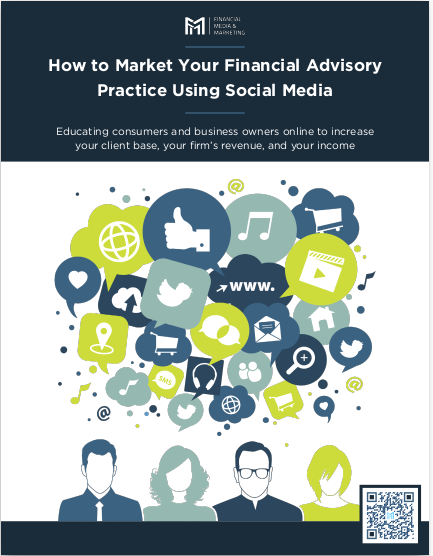Key Takeaways:
-
Standing out as a financial advisor in 2025 requires a mix of strategic branding, strong digital presence, and personalized client engagement.
-
Leveraging technology and refining communication strategies can help you build trust, increase visibility, and attract more clients.
Define Your Unique Value Proposition (UVP) and Make It Clear
Identify What Sets You Apart
Financial advising is a competitive space, and clients have plenty of choices. What makes you different? It’s not just about your credentials—it’s about how you present yourself. Your Unique Value Proposition (UVP) should clearly explain what makes your approach distinct. Are you particularly skilled in retirement planning? Do you specialize in working with a specific demographic, like business owners or government employees? Define your niche, and make it obvious in everything you do.
Speak Your Clients’ Language
A strong UVP isn’t about jargon; it’s about connecting with potential clients in terms they understand. Use straightforward, engaging language that resonates with your target audience. Avoid technical phrases that might confuse clients, and instead focus on how you solve their problems. For instance, instead of saying, “We employ an asset allocation strategy to optimize portfolio performance,” say, “We help you grow and protect your money for a secure future.”
Make Your UVP Visible Everywhere
Once you’ve nailed your UVP, make sure it’s consistently communicated across your website, social media, emails, and even in conversations. It should be instantly recognizable when someone visits your LinkedIn profile or your firm’s homepage. If potential clients don’t quickly grasp what makes you different, they’ll move on to someone else.
Build a Strong Online Presence That Clients Can Trust
Optimize Your Website for the Right Audience
Your website is often the first impression potential clients get of you. In 2025, having a generic, outdated site won’t cut it. Make sure your website:
-
Clearly states your services and who you help.
-
Loads quickly and is mobile-friendly.
-
Has a clean, professional design that builds trust.
-
Includes clear calls to action (e.g., “Schedule a Consultation”).
-
Features testimonials, case studies, or trust signals to reassure visitors.
Leverage SEO to Increase Visibility
Even the best website won’t help you if no one can find it. Use search engine optimization (SEO) to rank higher in searches when potential clients look for financial advisors. Focus on:
-
Using keywords related to your niche (e.g., “government employee retirement planning,” “wealth management for business owners”).
-
Publishing blog content that answers common client questions.
-
Getting backlinks from reputable sites to boost your credibility.
Maintain an Engaging Social Media Presence
Your online presence doesn’t stop with a website. Social media is key to staying top of mind. While platforms like LinkedIn, Facebook, and even YouTube work well for financial advisors, success depends on consistency.
-
Post content regularly, whether it’s market updates, financial tips, or thought leadership pieces.
-
Interact with comments and messages to build relationships.
-
Use video content to make complex topics easier to digest.
Use Technology to Streamline Client Acquisition and Retention
Automate Your Lead Generation
Finding new clients is easier when you use technology to automate processes. Implementing the right tools can help you:
-
Capture leads through your website with optimized forms and landing pages.
-
Set up automated email sequences to nurture prospects.
-
Use scheduling tools to eliminate back-and-forth emails.
Personalize Your Client Experience
Automation doesn’t mean losing the human touch. Instead, it allows you to focus on high-value interactions while streamlining the repetitive tasks. Use customer relationship management (CRM) tools to:
-
Track interactions with potential and current clients.
-
Send personalized follow-ups based on their interests.
-
Schedule check-ins to keep clients engaged and satisfied.
Implement Data-Driven Decision-Making
By 2025, data analytics is a must-have tool for financial advisors. Analyzing trends in client behavior, engagement, and market changes can help you refine your strategies. Whether it’s tracking the success of your email campaigns or understanding which types of content drive engagement, using analytics gives you an edge over competitors who rely purely on instinct.
Develop Stronger Relationships Through Client Education and Engagement
Provide Value Through Educational Content
Clients trust advisors who educate rather than sell. Offering valuable content—whether it’s blog articles, videos, or webinars—positions you as a knowledgeable and approachable expert.
-
Create easy-to-understand financial guides tailored to your audience.
-
Host free educational webinars or live Q&A sessions.
-
Send newsletters with actionable tips rather than generic sales pitches.
Offer a More Personalized Approach
In a crowded market, personalized service can be a game-changer. Clients appreciate advisors who:
-
Take the time to understand their individual financial goals.
-
Offer tailored solutions rather than one-size-fits-all advice.
-
Follow up with clients consistently, ensuring they feel valued.
Stay in Touch and Be a Long-Term Partner
Acquiring clients is one thing—keeping them is another. Financial advising is built on long-term relationships, so maintaining communication is crucial. Regular check-ins, annual reviews, and personalized messages on birthdays or milestones help reinforce your commitment to their financial success.
Elevate Your Brand and Grow Your Business
Standing out as a financial advisor in 2025 isn’t just about having expertise—it’s about how well you communicate it. By defining your Unique Value Proposition, strengthening your online presence, using technology to enhance client relationships, and focusing on educational engagement, you can build a reputation that attracts and retains clients in an increasingly competitive field.










